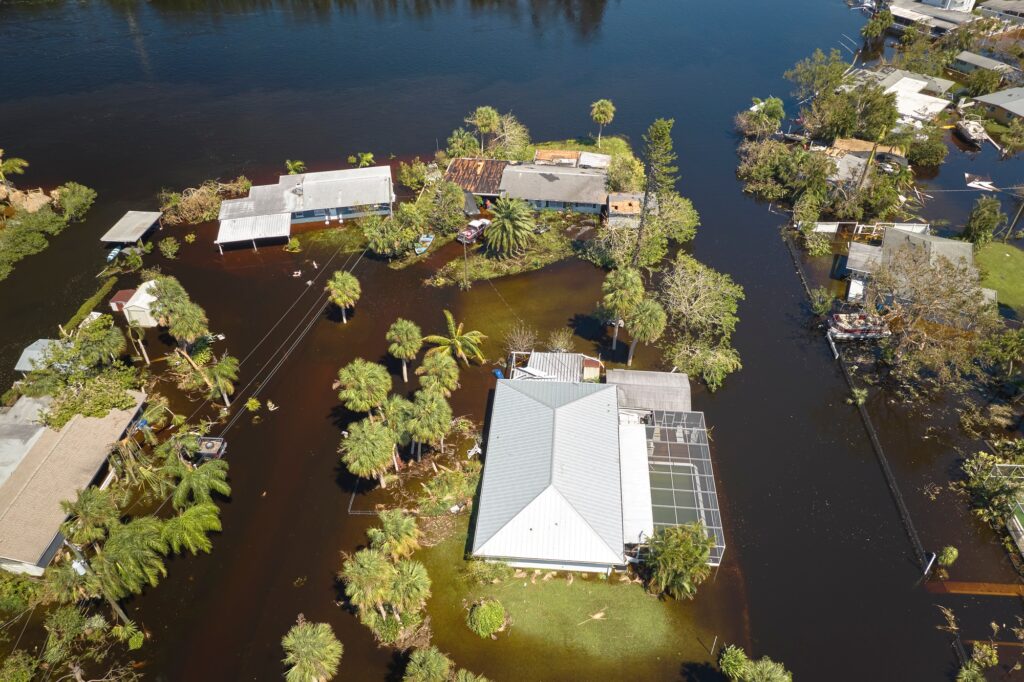Renting a car can be exciting, whether for a vacation or when your own car is in the shop. But before you hit the road, it’s important to know if your auto insurance has you covered. Rental Car Coverage isn’t always straightforward, and the last thing you want is an unexpected bill. This guide will help you understand your options and make confident decisions when renting a vehicle.
Understanding Auto Insurance and Rental Cars
What Is Rental Car Coverage?
Rental Car Coverage is protection that applies to cars you rent. Depending on your policy, it may include coverage for damage to the rental car, liability for injuries, or injuries you sustain. It’s usually an extension of your existing auto insurance policy.
Here’s a quick breakdown of what it might cover:
- Liability – Covers damage or injury you cause while driving the rental car.
- Collision – Pays for repairs if the rental car is damaged in an accident.
- Comprehensive – Covers other types of damage like theft, vandalism, or natural disasters.
But here’s the catch—your coverage may have limits that don’t fully protect you. For example, if your policy only covers the actual cash value of a car and you damage a newer rental, you could owe the difference.
Basics of Auto Insurance Coverage
To understand Rental Car Coverage, it helps to know what your regular auto insurance includes. Most policies have these main components:
- Liability Insurance – Covers other people’s expenses if you cause an accident. Florida requires at least $10,000 in Personal Injury Protection (PIP) and $10,000 in Property Damage Liability.
- Collision Insurance – Pays for repairs to your car after an accident, no matter who is at fault.
- Comprehensive Insurance – Protects against non-accident-related issues, like theft or weather damage.
While your coverage might extend to rental cars, it’s not guaranteed. If you only have state-minimum coverage in Florida, you may find significant gaps in protection when renting a car.
Key Questions to Consider
Not all Rental Car Coverage is created equal. Here are some key questions to help guide you:
- Does your policy cover the rental car’s full value? Many policies only pay for repairs up to your own car’s value.
- Are you covered for international rentals? Some policies don’t include coverage outside the U.S.
- Is there a deductible? Check whether you’ll need to pay out of pocket before coverage kicks in.
Knowing these answers before renting a car can save you from unpleasant surprises later. Tough on details? Don’t worry—we’ll cover Florida-specific rules and add-on coverage options in later sections. Stay tuned.
Scenarios and Situations Where Coverage May or May Not Apply
When Your Auto Insurance Typically Covers a Rental Car
Good news! If you’re renting a car for personal use, many auto insurance policies cover you. This typically includes liability, collision, and sometimes comprehensive coverage.
Here’s how it might work:
- Liability Coverage – Protects against damages or injuries to others if you’re at fault. For example, if you accidentally rear-end someone while in a rental car, this part of your policy kicks in.
- Collision Coverage – Pays for repairs to the rental car after an accident, regardless of fault.
- Comprehensive Coverage – Covers non-accident issues like theft or weather damage.
However, remember that your deductible still applies. For example, if your deductible is $500 and the repair bill is $1,200, you’re responsible for the first $500.
When Additional Coverage May Be Necessary
Sometimes, your auto insurance may not be enough. A few scenarios where you’d want to consider extra protection include:
- Renting for Business Use: Many personal policies don’t cover cars rented for work purposes. You’ll likely need business-specific rental car insurance.
- Specialty or Luxury Vehicles: High-end cars often exceed the limits of standard insurance. A collision damage waiver (CDW) from the rental company could help protect against costly repairs.
- International Rentals: Most U.S. policies don’t extend coverage abroad. If you’re renting overseas, explore local or third-party insurance.
Without these add-ons, you could be responsible for hefty repair or replacement costs. For example, Florida residents renting a Tesla for a beach trip might face a high bill if their coverage doesn’t fully apply.
What If You Don’t Have Certain Types of Coverage?
Not every Floridian has full insurance coverage. If you only have the state-mandated minimum—$10,000 each for Personal Injury Protection (PIP) and Property Damage Liability—you may face some risky gaps.
Here’s what could happen:
- No Collision Coverage: If you damage the rental car, you’d pay for repairs out of pocket.
- No Comprehensive Coverage: A stolen rental car might leave you with a major bill.
- Liability Limits: If you cause significant damage to another car or injuries to someone else, Florida’s low-required minimums might not be enough to cover all costs.
Considering that out-of-pocket repair costs can easily reach thousands of dollars, it’s wise to ask about supplemental rental car coverage. This can fill in the gaps and provide peace of mind.
Florida-Specific Considerations for Rental Car Coverage
Florida’s Minimum Insurance Laws and Their Impact on Rental Cars
Florida’s insurance laws are unique. The state requires drivers to carry minimum coverage of $10,000 for Personal Injury Protection (PIP) and $10,000 for Property Damage Liability. While it meets legal requirements, this may not cut it when renting a car.
Here’s why these limits are tricky for rental car situations:
- Low Coverage Amounts: If you’re in an accident with a rental car, the damage could easily exceed your $10,000 property damage limit. For example, the average cost of a car accident involving property damage in the U.S. is $4,700—but that number can triple with newer cars.
- Gaps Without Collision Coverage: Since state law doesn’t require collision or comprehensive insurance, many Florida drivers may not have it. This means if you damage the rental car in an accident or it’s stolen, you’re financially responsible.
Rental Car Practices in Fort Myers, Florida
Fort Myers sees plenty of rental cars, especially with its mix of local drivers and tourists. Whether you’re a resident taking a weekend trip or a visitor exploring Southwest Florida, knowing how rental companies handle coverage is crucial.
Here’s what’s common in Fort Myers:
- Tourists Renting Cars: Many tourists rely on rental cars to explore beaches, islands, and attractions. This leads to higher demand for SUVs and mid-size sedans.
- Local Preferences: Local Fort Myers drivers may rent when their car is in the shop or during hurricane season as a backup.
- Optional Insurance Offers: Rental companies in the area often upsell coverage options like Collision Damage Waivers (CDW) or Supplemental Liability Insurance. These can sound appealing but might overlap with coverage you already have.
Being aware of Florida’s insurance gaps and the rental practices in Fort Myers helps you avoid expensive mistakes or paying for unnecessary extras. When in doubt, double-check your existing rental car coverage or speak with your insurance provider.
Add-On Coverage Options for Rental Cars
Supplemental Insurance Offered by Rental Companies
When renting a car, you’ll notice companies offering supplemental insurance options. These can either add peace of mind or increase your bill unnecessarily, depending on your needs.
Common add-on options include:
- Collision Damage Waiver (CDW): Covers damage to the rental car, so you won’t have to pay for repairs if something happens. It’s not always insurance but a waiver of responsibility.
- Personal Accident Insurance: Covers medical expenses for you and your passengers if there’s an accident.
- Personal Effects Coverage: Protects belongings inside the car if they’re stolen or damaged.
These options sound great, but they come at a cost. For example, a CDW can add $10–$30 per day to your bill. If you already have Rental Car Coverage through your auto policy, paying for these extras might be unnecessary. It’s always wise to confirm what’s already covered before agreeing.
Coverage Through Credit Cards or Third-Party Providers
Good news—your credit card might already include Rental Car Coverage as a perk. This is often a complimentary service when you pay for the rental using the card.
What does credit card coverage typically include?
- Collision Damage: Most cards cover damage to the rental vehicle. However, they often exclude liability or injury coverage.
- Overseas Rentals: Some cards work internationally, giving you added value when traveling abroad.
One key point—credit card coverage is usually secondary. This means it only applies after your auto insurance has covered the first part of a claim. Always check your card’s terms before relying on this option.
Pros and Cons of Purchasing Add-On Coverage
Is paying for extras worth it? That depends on your situation.
Pros:
- You won’t have to worry about out-of-pocket repair costs if something happens.
- Add-ons can fill gaps your regular policy leaves, like covering medical payments or personal belongings.
- It’s simple and immediate—no need to research third-party providers or credit card policies.
Cons:
- Costs add up fast, especially for longer rentals. For instance, a week-long car rental in Fort Myers could include $100 or more in added insurance fees.
- You might already have coverage through your auto policy or credit card, making the extra spending unnecessary.
- Some rental companies include exclusions in their CDW policies, like damage to windshields or tires, which you’d still have to pay for.
By comparing your existing Rental Car Coverage with these add-ons, you’ll know whether they’re a good investment for your situation. The key is to avoid paying twice for the same protection.
Tips for Fort Myers Drivers Renting Cars
Questions to Ask Your Insurance Provider
Before renting a car, it’s crucial to know how your insurance works with rental vehicles. Ask your provider these key questions:
- Does my policy include Rental Car Coverage? Find out what’s covered and if there are any limits.
- What’s my deductible? Check how much you’d pay out of pocket before your coverage applies.
- Am I protected for all types of rental cars? Some policies may not cover luxury or specialty vehicles.
- Do I need to notify the insurance company when I rent a car? Some providers may require you to confirm the rental in advance.
Taking a few minutes to clarify these points can save a lot of hassle later.
Comparing the Costs of Add-On Coverage
Add-on coverage might seem like an easy way to avoid risks, but it adds up quickly. To decide if it’s worth it, compare the potential costs of relying on your existing policy versus paying for extras.
- Existing Coverage: If your auto insurance already includes Rental Car Coverage, it may provide enough protection without extra fees.
- Add-On Costs: Supplemental options like Collision Damage Waivers can range from $10 to $30 per day. For example, a seven-day rental in Fort Myers could easily cost $70-$210 extra.
- Risk vs. Reward: Consider the value of peace of mind. If you’re renting a luxury car or traveling during peak tourist seasons when accidents are more likely, add-ons might be a smart choice.
By comparing these costs ahead of time, you can rent smarter without overspending.
How to Avoid Common Pitfalls in Rental Car Coverage
Renting a car can come with unexpected challenges, but a little preparation goes a long way. Here’s how to avoid common pitfalls:
- Read the Agreement Carefully: Many rental contracts include fine print with exclusions. For example, the Collision Damage Waiver might not cover tire or windshield damage.
- Confirm Who Is Covered: If multiple people will drive the rental car, make sure they’re listed on the contract. Failure to do so could void your coverage.
- Brush Up on Local Laws: Florida has unique rules for Personal Injury Protection, which might influence coverage for injuries during an accident.
- Inspect the Car Before Driving: Check for existing damage and report it to the rental company. This protects you from being charged for issues you didn’t cause.
By steering clear of these traps, you’ll have a smoother and more stress-free experience during your rental period in Fort Myers.
Renting a car doesn’t have to be confusing. We’ve covered the basics of Rental Car Coverage, when your insurance applies, and when you might need extra protection. Florida’s minimum insurance laws, common rental practices in Fort Myers, and coverage gaps you might face were all highlighted. Add-on options and tips to avoid costly mistakes were also shared to help you make informed choices.
If you have questions about your coverage or want a quote tailored to your needs, we’re here to help. Contact us today to ensure you’re protected the next time you rent a car.







